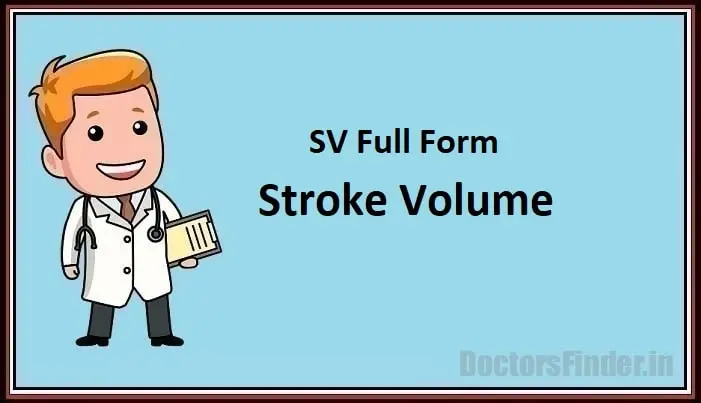The full form of SV in medical term is “Stroke Volume.”
Stroke volume indicates the amount of blood ejected by the heart’s left ventricle with each contraction. It is an important measure of cardiac function. It is influenced by several factors, including heart rate, contractility of the heart muscle, and the amount of blood returned to the heart by the veins.
The average stroke volume for a healthy adult is approximately 70 millilitres per beat, although this can vary based on age, sex, and physical activity level. In general, stroke volume tends to increase with exercise, allowing the body to meet the increased demands for oxygen and nutrients.

One of the key determinants of stroke volume is the preload or the amount of blood that is returned to the heart by the veins. It is influenced by blood volume, venous tone, and the body’s position.
Another important factor in stroke volume is afterload or the resistance that the heart must overcome to pump blood out of the left ventricle and into the systemic circulation. Afterload is influenced by factors such as arterial pressure, vascular tone, and blood viscosity. When afterload is increased, such as hypertension, the heart has to work harder to pump blood out of the ventricle, which can decrease stroke volume.
Heart muscle contractility is also an important determinant of stroke volume. Finally, heart rate is another important factor in stroke volume.